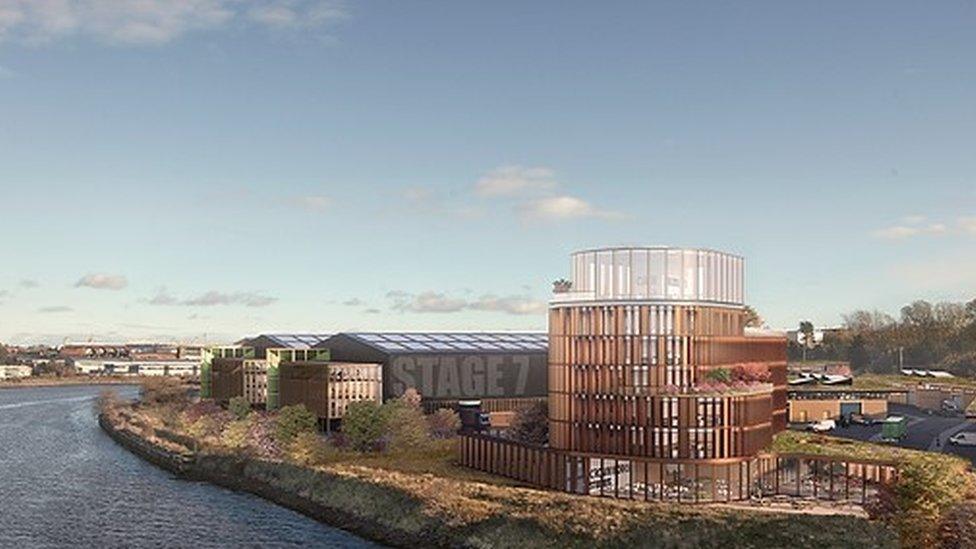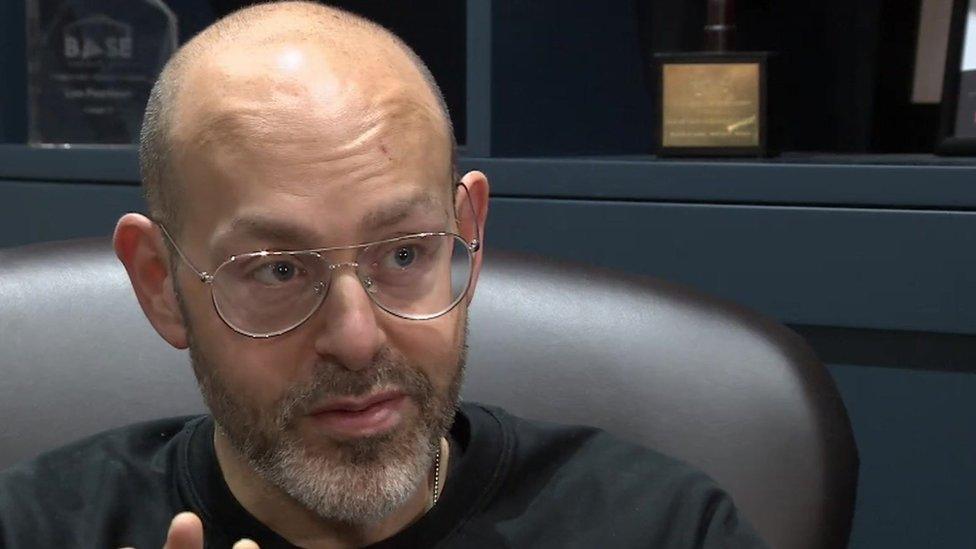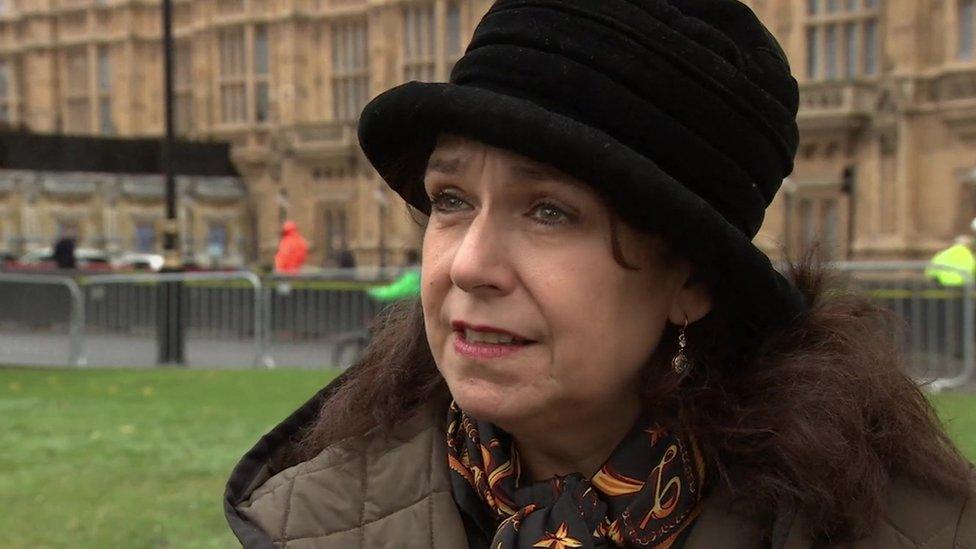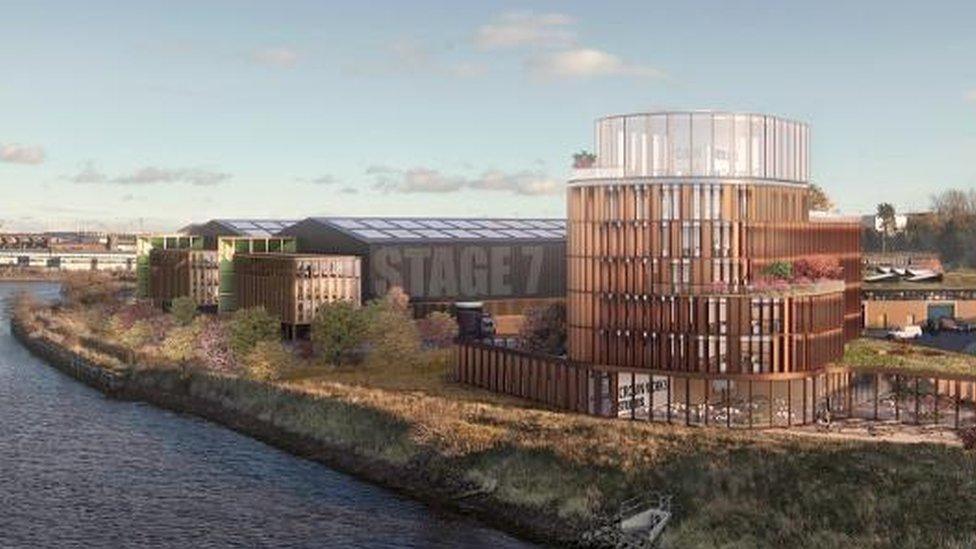Sunderland: Plans for one of Europe's biggest film studios submitted
- Published
- comments

A computer-generated image of the site, to be built at the former Pallion shipyard
The man behind plans to build a huge film studio in Sunderland says the government needs to pledge funding soon - or risk losing out on the chance to create thousands of jobs, and transform the UK film industry.
The proposed film studios are being hailed as a 'Hollywood for the North', with the potential economic impact on Sunderland described as 'bigger than Nissan'.
Leo Pearlman, the brains behind the planned development, has stressed the government needs to give its backing to the proposal soon, or the region - as well as the UK's creative industries - will miss out.
A planning application for Crown Works, as the studio would be known, has been submitted to Sunderland Council.
But this is no ordinary submission.
If it reaches its full potential, it could directly employ more than 8,400 people, provide 20 sound stages for film and TV productions, and bring more than £330 million-a-year to the economy.
The development would be built on the site of Sunderland's former Pallion shipyard.
Its transformation - into one of Europe's biggest film studios - would represent an incredible rebirth for a site that was once the powerhouse of Sunderland's economy.
Seeking support
At the moment, the plot is a derelict scar, a symbol of decline.
Leo Pearlman, whose production company Fulwell 73 is one of the driving forces behind the proposal, believes, if plans are given the go-ahead, the area could be buzzing with life again within years.
His company has joined forces with London-based developer Cain International and Sunderland Council to turn the idea into reality.
And they say they have already secured £450m of private investment.
But, similar to Nissan's investment in Wearside in the 1980s, Mr Pearlman says the plans will also need some commitment from the government to make them happen.
So far, he says, despite warm words from ministers, hard cash has not been promised.

Mr Pearlman urged the government to "match their ambition and partner with them on the project"
Mr Pearlman has urged the government to "match their ambition and partner with them on the project".
The opportunity could "not only regenerate the region, but also improve the chances of UK creative industry on a national basis," the TV executive insists, citing the success of film industry development in Atlanta, in the US, as a marker of Sunderland's bright future.
The city, in the southern state of Georgia, only began its push as a leader in film production two decades ago, but it is currently projected to overtake California as the biggest American base for TV and film.
Creative industries boost
"The North East can be the 'Atlanta' to the UK in 10 years' time," says Mr Pearlman. "That's the opportunity that's there - if people want to take it."
Amazon recently told the Commons culture committee that Britain was at risk of losing its status as one of the biggest production centres outside Hollywood.
Mr Pearlman believes, without the Sunderland studio, the UK could struggle to retain a major slice of the billions invested each year globally in TV and film.
Julie Elliott, the Labour MP whose Sunderland Central constituency includes the Pallion site, has also urged the government to act, but says she is cautiously optimistic that a commitment is coming.
She adds: "The big issue here is skills and the training of the people who will work in these studios, and we do need government support on that."

Labour MP Julie Elliott has also urged the government to act over the studio proposal
Mr Pearlman, whose company produced the Netflix hit Sunderland 'Til I Die - about the city's football club - said he hoped to hear more in the government's Autumn Statement on Wednesday.
For now though, the wait continues - with the government stating only that it is committed to supporting and developing the film industry in the UK.
A government spokesperson said: "We want to maximise the potential of the UK's screen sectors, including in the North East.
"We continue to help film and high-end TV thrive through competitive tax reliefs, support for industry skills, and studio infrastructure developments - as part of our aim to boost the creative industries by an extra £50bn and create one million extra jobs by 2030."

Follow BBC North East & Cumbria on X (formerly Twitter), external, Facebook, external and Instagram, external. Send your story ideas to northeastandcumbria@bbc.co.uk, external.
Related topics
- Published24 February 2023

